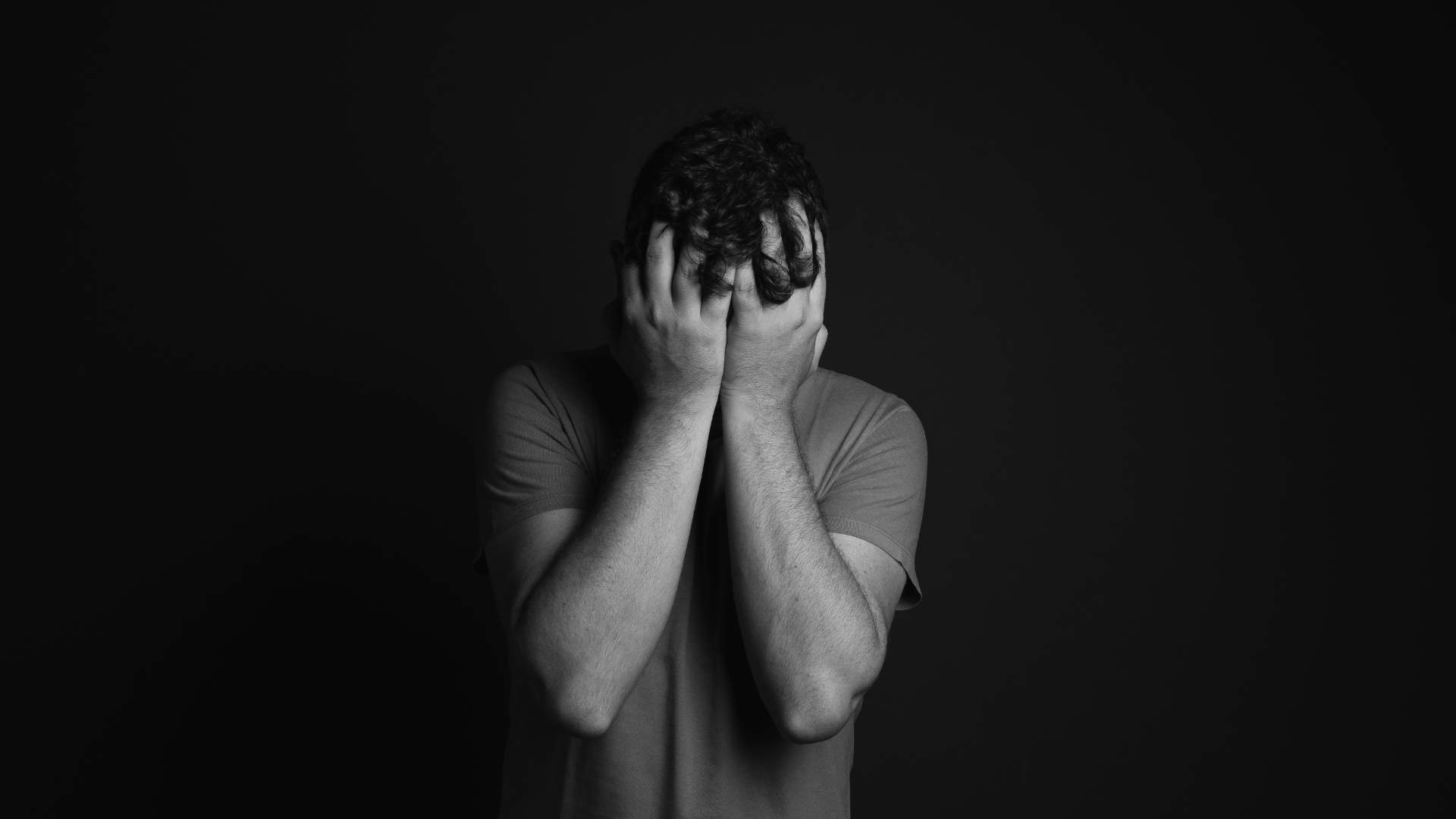Depression, also known as major depressive disorder, is a mood disorder where people feel a sense of consistent and heavy sadness along with hopelessness, random outbursts, suicidal thoughts, low self-esteem, and many others that will differ according to the person.
Knowing precisely what the depression symptoms are and how long they will last can help someone who is going through a depressive episode and be aware of how to get out of a depressive episode in a beneficial and proactive manner.

Depression symptoms
We touched lightly in the introduction about some of the symptoms of depression that people can experience, however, there is a number out there that people can feel when they are going through a bout. It is important to remember that not everyone will have these symptoms all at once, as the depression goes on, they may go through a variety that will impact their mental health.
If you suspect someone is going through a depressive episode, you may want to direct the person in question to a mental health professional to be treated. If you are unsure if they are, reading the list below may help you determine if they are dealing with a depressive episode or if you are.
- Less interest in normal activities or a lackluster response to doing anything
- Tearing up at random points, as well as saying they feel an emptiness
- Mood swings with frequent outbursts of anger and frustration
- Not speaking to loved ones – not messaging back or picking up calls
- Being unable to sleep or sleeping too much (mixed up sleep patterns)
- Trouble concentrating, zoning out at certain points, or forgetting what they are saying
- Physical reactions like headaches, and full-body pain may target the back or neck
- Weight gain or weight loss (noticeable)
Hopefully, these symptoms of depression will confirm if they are going through any physical and mental health problems that are affecting their day-to-day life. It can be hard for people to reach out for help especially if they don’t know how to seek treatment for their issues.
How does depression start?
There is no specific reason for depression to start, it varies from person to person and will have a specific personal trigger.
Stressful life events
A family member may have died, or maybe you have lost your job. When a stressful event happens, our bodies can react in certain ways, you can become physically ill and your mental health can plummet, it more than likely will be both in some form. If it keeps happening it can turn into recurrent depressive episodes that may ultimately end up as a depressive disorder.

Illnesses
When people get sick their whole lives can turn upside down. Cancers, heart disease, or a chronic condition can make some get a low mood that may turn into severe clinical depression if not properly supported with professional help.
Broken relationships
This does not just apply to romantic partners, this can also apply to family relationships too. A low mood can be brought on by constant fighting, declarations of dislike and hate, and then an eventual breakup or distancing can form. If someone already has other mental health problems too, this can exacerbate other symptoms, and cause recurrent depressive episodes to happen.
Getting older
Age can factor into someone experiencing depression. As time goes on, they may feel detached from society and fall back into a depressive pattern that they can’t get out of. Age will also bring along illness and a weaker body, which can take someone’s mood down, potentially turning it into recurrent depression.
The time of year can also upset older generations as winter will produce isolation and darkness which may mean them getting seasonal affective disorder at these times. As a result of such conditions, it is recommended that older people move into assisted living with Chelsea Senior Living (https://www.chelseaseniorliving.com/locations/new-jersey/sparta/) where they can get the necessary assistance to make their lives better.
What makes depression last longer
Depression can turn into a persistent depressive disorder if left untreated, it may also mean that any future episodes could be worse with more symptoms cropping up. Unfortunately, this may lead to self-harm or a substance use disorder which heightens their risk of not recovering.
According to banyanmentalhealth.com, a depressive episode can range from six months to eight months, however, this is dependent on the person and their approach to how they treat depression.
Family history
There could be people in your family who have their own mood disorders and mental illnesses, whether that be severe depression, anxiety, bipolar disorder, frequent major depressive episodes, and so on. It is worth looking into your family history to see if this is true, so you are aware of what potentially could happen.
Personality
Your personality type will have a factor in your mental health too. Type A, type B, people pleasers, worriers, introverts, extroverts, etc., each one of these will make an impact on how you are and how you handle a situation. Even people with the same personality type will have different mental health issues because of other factors that come into play.

Past trauma
If you have gone through something traumatic, maybe you had a harrowing pregnancy and developed postpartum depression afterwards, then down the line, this may come back to hit you again, prolonging that depressive episode and creating more problems that are harder to get rid of.
No support
Having no support in your family or friend circle can cause depression to be frequent, and the potential for substance abuse to form, if you are trying to find a way to release that mental pain without any support, will be higher. Depressive episodes can last longer and the potential for a major depressive episode will rise.
How you can help with depressive episodes
You may think that you won’t have much of an impact on someone who is having mental health problems, but your willingness to support them and get them out of that social isolation and into treatment can get them through these tough times.
Your approach
From a personal point of view, you can arrange to meet them or go to where they are and ask to speak with them one-on-one. Make sure they are comfortable and tell them that you have been noticing that they have been feeling sad for several weeks and you wanted to see how you can help.
They may deny it at first or act in anger, but keep your voice calm and your physical actions minimal. You are not there to verbally fight them but support them through this.
Read up on ways that people can reduce symptoms of depression and try and give them to this person, you may have not experienced depression yourself, but that doesn’t mean you cannot sympathize with what they are going through.
Personal help
If they are not willing to see someone who specializes in mental illness or mental health problems, then you can always try on a personal level and see what you can do. For example, help them practice mindfulness as well as self-care by doing physical and mental exercises with them, as well as create a gratitude journal for them to write their feelings down with the negative thoughts being put out there for them to face and deal with in a calming manner.
You could do deep breathing exercises with them during heightened moments of depression and anxiety, as well as help them form a healthy diet by looking into mood-boosting foods and what to avoid. Using cannabis could also help deal with such difficult times; you may find some cheap hash Canada (if that’s where you’re at) that you could use when you feel down or anxious. Different THC and CBD-rich products have been known to induce states of euphoria and help deal with pain.
Cannabis goods can be found in the form of oils, tinctures, flower, edibles, and more. And there are many ways to consume them – through vapes, rolled joints, edibles, and more. But If you decide to go this route, make sure to buy cannabis from a reliable source and to use the necessary gear, such as a bong or rosin press from online stores like https://www.theju1cebox.com/products/the-ju1cebox, in order to ensure a safe and enjoyable experience. It is important to remember that while cannabis has been known to help with mental health, it should not be used as a long-term solution.
Alternatively, you could indulge in self-care activities. And that you can do by dedicating time to things that you like. You could take an example of, say, watching videos on Tube v Sex and similar other sites which could help you stimulate and give yourself a temporary mood boost. And that mood boost could be the kickstart you need to engage in a long-lost hobby too!
These little things can help reduce feelings of depression and give them the coping skills they need to face stressful events that will come up from time to time. You do not need to be a mental health professional to understand what someone is going through. Kindness and compassion are always needed.
What you need
You can apply these treatments to yourself as well, it may take some time to build self-esteem and get through your own depression, but with self-care and lifestyle changes, you can see the light on the other side.
It won’t be easy, and you will have times when you don’t want to keep going, but use that to push you forward. The world is a better place with you in it, you deserve to see how things pan out, what you can do for yourself, and all that you can be.
Professional treatment
At some point, you or someone else may need to access professional support to get the necessary help in battling your depression. If this is the case, then there are many professionals and mental health services out there that you can access, whether you have mild depression or a severe form of depression, they will have you speak to support groups, and/or put you through talk therapy to get to the root of the issue and help you recover.
Electroconvulsive therapy
In some extreme cases of serious and detrimental depression, as well as other mental illnesses, the use of electroconvulsive therapy (ECT) may be used as a treatment to shock the brain and relieve some mental health problems, however, it hasn’t been decided how strongly effective it is, but some have said that it is helpful so it is still used as a treatment, but only when all other assistance has failed, such as medication and therapy.
Depression awareness month
October is depression awareness month for everyone to take note of what depression is, what the risk factors are, and how they can get help. It is important to educate people on depressive symptoms, and what to look out for with others and themselves.
Opening up a dialogue can really help people get the help they need and catch the signs of depression early so they are not suffering in silence. Millions upon millions experience depression, so talking about it is the best way for people to feel safe and supported.

